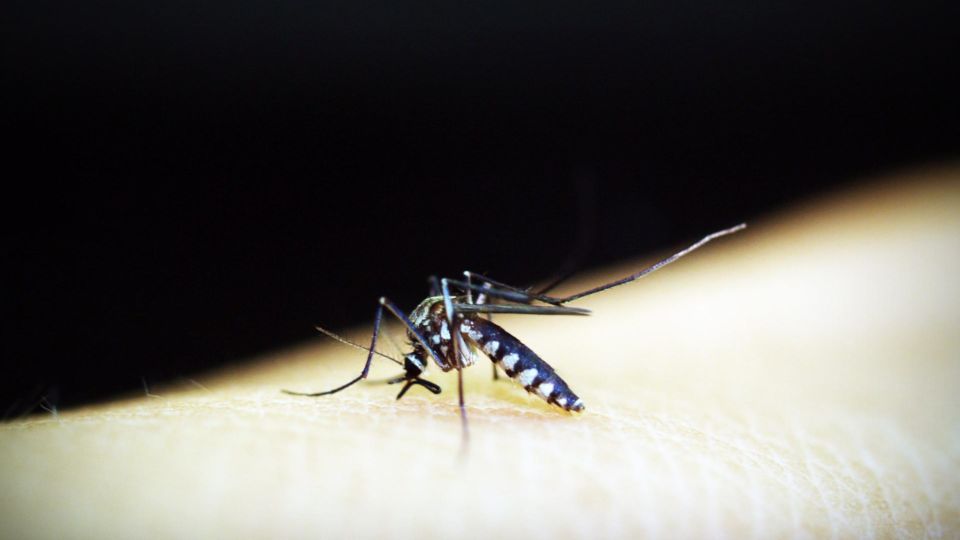Two inbound travelers with malaria have died in Hong Kong as the city faces a rare spike in the mosquito-borne infectious disease.
The Centre for Health Protection said in a statement on Thursday that a 52-year-old man died while undergoing Covid-19 quarantine, adding that post-mortem results revealed that he carried the malaria parasite.
The center also said that it recorded 30 malaria cases from July 1 to Thursday, all men aged 25 to 57 who came from Africa and arrived in Hong Kong between July 1 and Aug. 1.
A total of 21 of them arrived from Guinea.
“All patients underwent quarantine at designated quarantine hotels in accordance with relevant entry requirements upon arrival,” the center said in the statement.
Inbound travelers to Hong Kong currently have to quarantine for Covid-19 in designated hotels for seven days.
On Friday, Lau Ka-hin, the Hospital Authority’s chief manager for quality and standards, revealed that another patient died on Friday afternoon.
The doctor said the patient was admitted to the internal medicine department of Queen Elizabeth Hospital for malaria treatment on Wednesday but was transferred to the intensive care unit on the same day.
“He was already in a very bad condition when he was admitted,” Lau said, but did not give information on the patient’s age.
Despite giving him medication and putting him on a ventilator, his condition continued to deteriorate, the doctor added.
Lau also said that there are currently 19 patients under treatment in public hospitals, with eight in Princess Margaret Hospital, two in Queen Elizabeth Hospital and nine in Kwong Wah Hospital.
Local media have reported that all the patients, including those who have been discharged, work for the same Chinese company and they were returning to the mainland via Hong Kong.
The center has said it is conducting an epidemiological investigation and those who had contact with the carriers have been put under medical surveillance.
Symptomatic patients will be sent to hospital, while blood tests would be offered to those who are asymptomatic, it added. Cases that test positive would be sent to hospital for treatment.
Chuang Shuk-kwan, the head of the center’s communicable disease branch, added on Friday that it would ask travelers coming into Hong Kong from Guinea if they have malaria symptoms. If they have these symptoms, they will be sent to hospital and if they don’t, the center will offer to give them blood tests and put them under medical surveillance.
She also said that the recent cases had undergone Covid-19 quarantine in six to seven designated hotels including Silka Seaview Hotel in Yau Ma Tei.
Lau said that there is currently enough medication for all the malaria patients, adding the authority would purchase more medicine from around the world, including mainland China, if necessary.
The center said that since the imported malaria cases were found at quarantine hotels, the authority would follow up on the mosquito infestation of relevant locations and step up anti-mosquito work as needed.
Malaria is a communicable disease transmitted by an infected female Anopheline mosquito.
Anopheline mosquitoes that have been found in Hong Kong include Anopheles minimus and Anopheles jeyporiensis, but according to the Food and Environmental Hygiene Department, the two types of Anopheline mosquitoes have not been found in urban areas in Hong Kong in recent years.
“Apart from the breeding of Anopheles jeyporiensis near Tai Lam Chung Reservoir in 2021, there have not been any spots with Anopheles minimus or Anopheles jeyporiensis breeding in the past 10 years,” the center noted.
Hence, the Department of Health opined that the risk of local transmission of malaria is extremely low.
The last local malaria infection happened in 1998, and there were seven and four cases of malaria reported in Hong Kong in 2020 and 2021 respectively.
However, the center urged the public to maintain strict environmental hygiene, mosquito control and personal protective measures both locally and during travel.
“The public should remain vigilant as malaria is more common in some African and Southeast Asian regions. Travelers to malaria-endemic areas should use DEET-containing insect repellents both during travel and for 14 days after arrival in Hong Kong,” a spokesman for the center said.
Malaria is a serious and sometimes fatal disease. Common symptoms of malaria include fever, chills, headache, muscle pain and weakness, cough, vomiting, diarrhea and abdominal pain. Without proper treatment, severe malaria is serious and potentially fatal.
The center noted that the incubation period of malaria usually ranges from seven to 30 days but the disease may take months or even longer to set in after the bite of an infected Anopheline mosquito.
Anyone feeling unwell after returning from a trip should seek medical advice as soon as possible and provide travel details to their doctor, it added.




